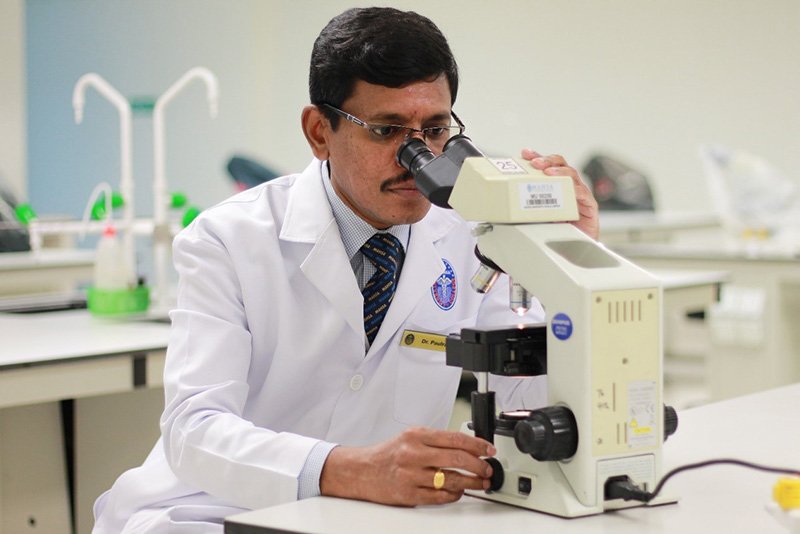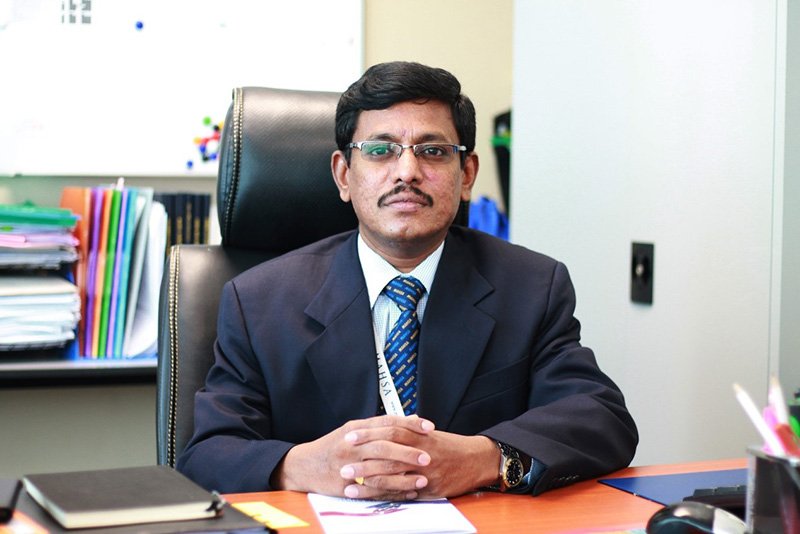An Interview with Dr. Pauraj Ponnaiah - Head, Department of Biomedical Science
Biomedical Science, simply put, is the study of human health and disease. This programme is taught by biomedical scientists and researchers, giving students the skills required to investigate diseases and develop future diagnostic tools.
In recent years, Biomedical Science has seen a sharp increase of interest from potential students and parents, seeking for niche areas in medical and health sciences.
MAHSA ACE Scholars caught up with Dr. Paulraj Ponnaiah, Head, Department of Biomedical Science from the Faculty of Medicine and Biomedical Sciences in MAHSA University.
Tell us about yourself.
I am a microbiologist. I did my Masters and PhD in microbiology, completed State Level Educational Test (SLET) lectureship for microbiology and also National Eligibility Test (NET) for life sciences. I had a Junior Research Fellowship (JRF) in microbiology for five years. I also did extensive research in cyanobacteria, and the purpose of that research was to replace non-degradable plastic into degradable plastic. It is actually a renewable source because the cyanobacteria would use carbon dioxide to produce bio-degradable plastic, reducing carbon dioxide content in our atmosphere and at the same time producing eco-friendly bio-degradable plastic for tissue implants. This is what I feel most passionate about. It is how the application of biomedical science can lead to the discovery of vital scientific developments and improving the lives of others.
Tell us about your family.
I have a young family. My wife is a dentist, and we have a two-year-old son. It may grow into a larger family soon, but for now, it is just the three of us.
What brought you to MAHSA University?
Originally I planned to go to Germany, but MAHSA University came calling. I was immediately drawn to MAHSA’s vision of being the best in the field of medical and health science. That was almost seven years ago. Since then, MAHSA has gone from strength to strength.
How has your experience been in MAHSA?
Biomedical science is a very expensive programme to run and everyday I am in awe that the management continues to invest so much in making the facilities great. We have as many as twenty-three accredited laboratories, which is very important in the assurance of quality. Getting the accreditation means that the laboratories are benchmarked for performance and certified for reliable testing, measurement and calibration services. That is not something I or my team take for granted. Above all else, I find that my experience has been greatly enriched by the students, their openness and eagerness to learn, and by my team of lecturers who bring their zeal and their passion to class everyday.
What do you think is the future of biomedical science in Malaysia?
It is a broad field which provides a lot of job opportunities. Careers in this field are growing very rapidly and the pay is good. The overseas job opportunities are also very high, particularly in the United Kingdom and Canada. So the outlook looks good for the future.
What are some typical career prospects?
Biomedical scientists apply science to medicine. We learn both diagnostic and biomedical research techniques. Medical diagnostic labs, medical research labs, pharmaceutical research labs, and many others offer job opportunities for graduates in this field. The pharmaceutical field is actually looking for biomedical science students to discover new medical drugs.
Do you have any future plans for the Department?
Yes. Huge plans. We want to start a Master and PhD program as we have had a lot of enquiries from biomedical scientists interested to advance in the discovery of new knowledge. We are also going into the field of Biotechnology, offering specialisations in Medical Biotechnology, Agricultural Biotechnology, Animal Biotechnology, Industrial Biotechnology and Environmental Biotechnology.
Thank you Dr. Paulraj for your insights into what Biomedical Science is and the bright future it holds.




